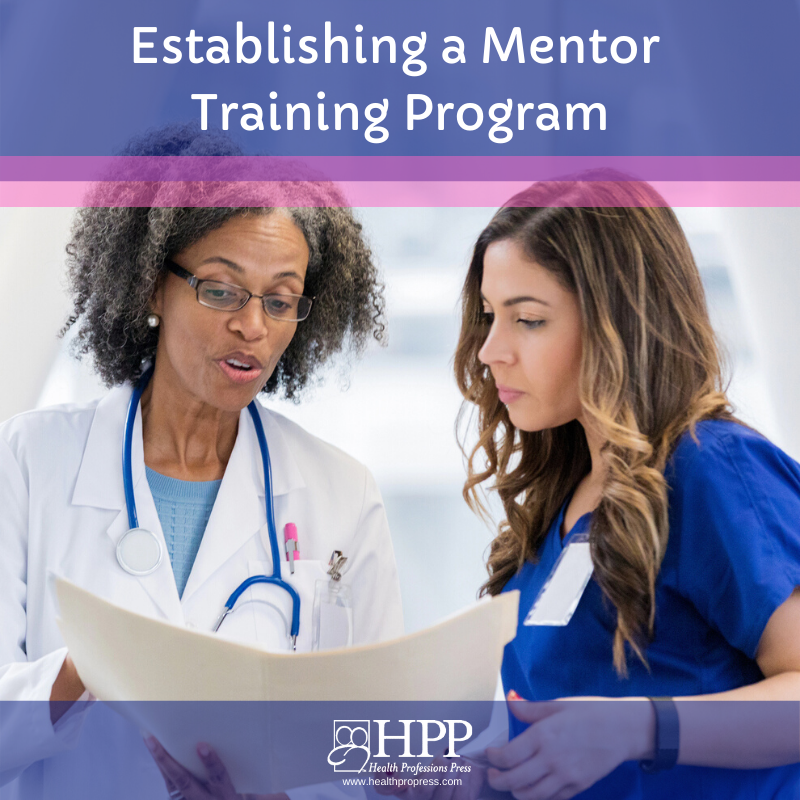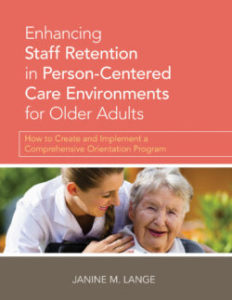
One of the most challenging aspects of providing person-centered care is assembling a dedicated, competent, and well-trained team of caregivers. Continuity of care is compromised when there is a high rate of employee turnover; it is detrimental to the well-being of the residents and is a financial burden to the employer. Constant hiring and rehiring degrades the integrity of the staff and diminishes the reputation of a long-term care community.
The orientation process for our caregivers is one of the most important investments of time and resources we can make and is absolutely essential to ensure your residents will receive the care they deserve. After the initial processes of interviewing and hiring are completed, it is imperative to prepare your new team members to become an integral part of your community. Providing an in-depth, comprehensive orientation program will equip new team members with the tools needed to be successful.
Conducting an orientation program is only one half of educating new team members. The second half is to pair them each with a good mentor who will continue the education process. Mentors are trained staff who are dedicated to helping new team members transition from “new employees” to productive, contributing co-workers. Mentors serve as peers in the Neighborhood and perform many roles for new hires, including the following:
- Provide education, guidance, support, and encouragement
- Assist new team members to develop and enhance problem-solving skills
- Encourage independence and good decision-making abilities
- Help orientees transition into the community at large
- Ensure orientees successfully demonstrate all skills
- Provide feedback to supervisors about orientees’ performance
- Help orientees set goals and assist them in achieving those goals
- Encourage orientees to find ways to utilize their strengths and assist in addressing their weaknesses.
This list is a tall order for any one staff member; therefore, it is important to seek out the right people for the task. There are those employees we often wish we could “clone” or had five more of just like them; they are the ones who would be great mentors. However, even the best nurse or nurse’s aide may not be a good teacher. Teaching requires excellent communication skills, patience, and the willingness to help others succeed. It takes a huge commitment of time and resources, which makes it essential that the mentor be organized, timely, and thorough in his or her duties. Mentors must work well independently and possess strong critical thinking skills. Additionally, they must demonstrate the required skills to complete their tasks.
Becoming a mentor has many positive aspects for those who choose to serve in this very important role in your community. Mentors build their skills and gain a higher level of confidence as they see the impact they have on new team members. Mentoring also increases employee retention and reduces undue stress on new and existing staff, which ultimately saves time and money. Overall, mentoring is a person-centered approach that benefits everyone involved.
For detailed instructions on how to start a mentor program in your community, read Enhancing Staff Retention in Person-Centered Care Environments for Older Adults.
This post was adapted from Enhancing Staff Retention in Person-Centered Care Environments for Older Adults: How to Create and Implement a Comprehensive Orientation Program by Janine Lange. Copyright © 2015 by Health Professions Press, Inc. All rights reserved.
Read the book!
 Enhancing Staff Retention in Person-Centered Care Environments for Older Adults
Enhancing Staff Retention in Person-Centered Care Environments for Older Adults
How to Create and Implement a Comprehensive Orientation Program
By Janine Lange, M.S.N., R.N.-B.C.
Copyright © 2015 by Health Professions Press, Inc.
2016 American Journal of Nursing Book of the Year award-winner!
Reverse the damaging trend of high employee turnover in long-term care environments with this step by step guide to creating a successful orientation program for all levels of staff.
